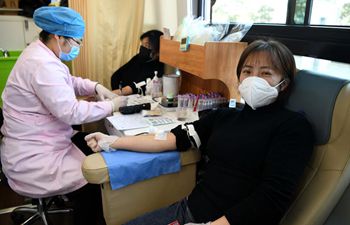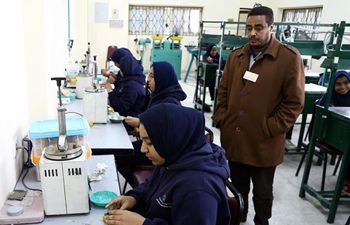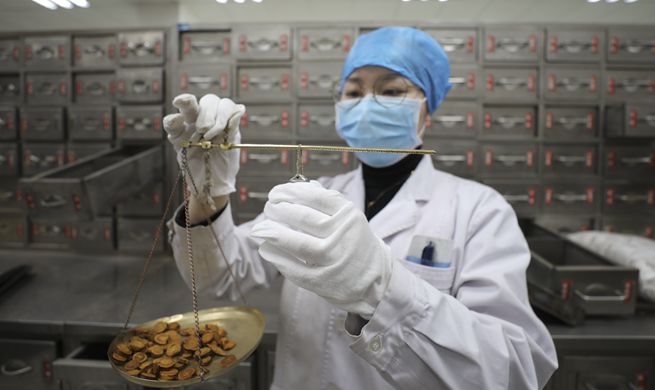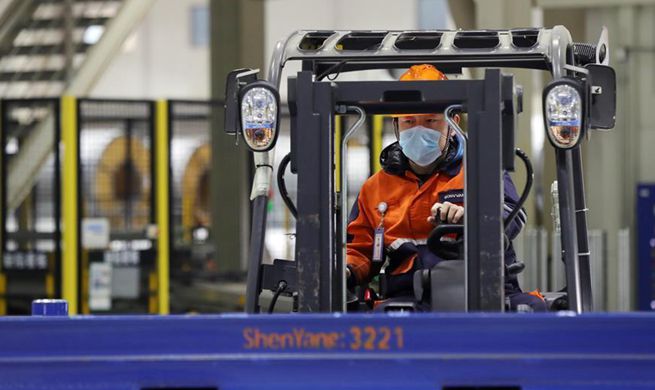BERLIN, Feb. 18 (Xinhua) -- Potential candidates are gearing up to run for the chairman of Germany's ruling Christian Democratic Union (CDU), a likely stepping-stone to become future chancellor, succeeding Angela Merkel in the parliamentary election set in 2021.
The succession race was triggered when Annegret Kramp-Karrenbauer, long seen by Germany media as Merkel's successor, announced last week that she would resign as party leader and ruled out running as the conservatives' top candidate in elections set for next year.
The announcement came after a controversial state premiere election in Thuringia as CDU indirectly collaborated with the right-wing party Alternative for Germany (AfD) which was perceived as crossing the political red line, according to German media reports.
On Tuesday, three candidates have applied for the top post in German party politics, according to German news agency DPA.
Norbert Roettgen, former minister for environment, said that he was going for the post of CDU leader, meanwhile other party members also registered to run for the leadership.
"This is more than just a personnel decision," Roettgen said at a press conference to announce his candidacy in Berlin. "This is about the future of the CDU."
Roettgen noted he was more of a centrist and would listen to dissatisfied voters who have turned to the AfD.
Although the other names were not given, local media long speculated that the likely candidates are the former CDU faction leader Friedrich Merz, German Health Minister Jens Spahn and Armin Laschet, prime minister of Germany's most populous state North Rhine-Westphalia.
According to a poll by opinion research institute Forsa, Merz has the biggest support among the German public out of the three candidates.
Twenty-seven percent considered Merz to be the most suitable candidate for chancellorship, followed by Laschet with 18 percent and health minister Spahn who just received 8 percent of the votes.
"I want us to settle this in a decent way among ourselves. And I will help to ensure that this decent form is maintained", said Merz who did not want to settle the question in a vote of all CDU members.
According to political analyst Michael Spreng, Merz was considered "conservative without being right-wing" which would give him "the greatest chance", especially in eastern Germany, to win back votes from AfD voters for the CDU.
However, Merz who stepped down as head of U.S. investment bank Blackrock in Germany has less support among his own party and already lost a vote, albeit narrowly, as CDU party leader against Kramp-Karrenbauer last year.
The second potential candidate Health Minister Jens Spahn who at the age of 39 is the youngest minister in Merkel's cabinet only announced his general willingness to lead the CDU and run for chancellorship. "I have always said that I am prepared to take responsibility," said Spahn.
Spahn said that he currently also had the obligation to fulfill his job as Minister of Health. The vast majority of citizens were also less interested in debates about personnel, but rather in whether politics was doing something for their everyday lives.
The third candidate Armin Laschet has been quieter than Merz and Spahn and so far only said that nobody would know what the future holds.
Kramp-Karrenbauer has vowed to lead the party until a new leader is found. She spoke with Merz earlier on Tuesday but details of the discussion were not revealed, DPA said.
Kramp-Karrenbauer is expected to hold private talks with Roettgen in the coming days, DPA reported.
She is also expected to hold separate talks with the other possible contenders, Laschet and Spahn, on Wednesday, before updating the party executive on the selection process early next week, according to DPA reports.













